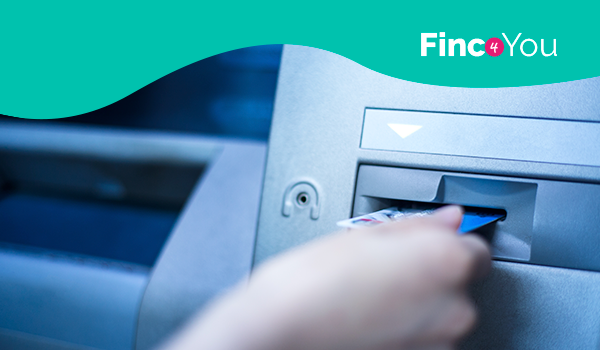Understand how banks earn money from services and investments, how do banks profit?

Although we all use our bank accounts on a daily basis, most of us may not know how banks really work. How do banks make money with interest-paying checking accounts and free ATM services? Well, you better believe that banking is a business and that making a profit is your priority. Lets go to what matters!
Basically, banks don’t make a profit until they have their money. Therefore, it is vital for banking institutions to acquire and retain customers. Because of this, they offer sign-up and referral gifts, direct deposit fee waivers, and high-value customer benefits. Like any business, banks have sources of spending and income that they use strategically to grow.
How do banks profit?
Banks make money by imposing fines or recurring fees on account holders. However, the main way to earn money is through loans. Below are the main ways banks make money.
Money coming from interest on debts
When you deposit your money into a bank account, the bank uses that money to make loans to other people and businesses for which it charges interest. The bank pays a certain amount of interest to add to your deposit. However, they charge more interest on loans they make to third parties than they pay to account holders like you. This, in turn, makes a profit for them.
For example, your standard checking account earns 1% every month, but the bank uses these funds (in combination with many other accounts) to provide 4% mortgages, 12% student loans, and 20% credit cards. Whether it’s the interest you pay on your mortgage or the interest they earn by borrowing the money you’ve saved on them, banks make large sums of money with what appear to be small percentage margins. Big banks can earn more than $50 billion a year just from interest and similar amounts on other services and products.
Earning pennies every month, in the end the bank has millions.
Bank charges: How do banks make money from fees and what fees do they charge? There are a few different fees that banks charge; Here are the fees you pay to your bank:
Account maintenance: Banks make money by charging monthly service fees. For example, you might charge a monthly fee of $13.95 per month to maintain the account. Some banks offer free accounts or waive these fees if you meet certain requirements, such as setting up a direct deposit or minimum balance. Make sure you do your research to find the best free bank so you can keep more money in your pocket!
Account inactivity: When your account becomes inactive, also known as inactive, charges will apply. You can avoid this by simply making a deposit or withdrawal so that your account becomes active. Be sure to check this out before opening an account you rarely plan on using.
Overdraft: Banks make money by charging low fees. Every time you spend more money than you have in your account, banks charge an overdraft fee. This is another way for banks to make money. You can avoid them by keeping an eye on your budget. If you made a mistake and you have a good relationship with your bank, you can ask for a refund, but they don’t do it very often.
Excessive movement: There are different rules for savings accounts and checking accounts. Savings accounts have federally imposed monthly limits on transfers and withdrawals, known as Regulation D. So do your best to keep the money in your savings account without spending too much. This way, you avoid fees and also the depletion of your savings accounts.
Transfers: You can use wire transfers when you want to quickly send money to another bank or institution. These transfers usually take place on the same day. This is not the same as ACH transfers, which can take a few days, etc. Fees depend on whether the transfer is domestic or international and also vary by financial institution
Statement fee: Some banks may charge a fee for paper statements. Also, if you need to request archived bank statements, there may be additional charges. Paperless is greener, easier to control and more efficient, so be sure to consider this option.
Card replacement for loss or theft: Some banks may charge fees for lost or stolen debit cards. While it’s not very expensive, it’s another fee you can avoid with the right bank.
ATM fee: Using certain ATMs outside your bank’s network can cost as much for your bank as the ATM of the bank you are using! Avoid paying these fees at your bank’s ATMs or withdrawing enough money so that you don’t have to access another institution’s ATM.
bad checks: There are two types of penalties for bad checks. The first is when you return a check, which means you don’t have enough money to pay the check amount. Depositing someone else’s bad check will also cost a fee, even if you do so without knowing it.
Minimum balance: Minimum balance fees are another way for banks to make money. Therefore, if your account balance falls below the minimum balance, you will be charged a penalty. It’s best to find accounts with a minimum balance of zero so you have one less thing to worry about and unexpected withdrawals.
Transaction fee: While a debit or credit card pass is usually free to you, there is usually a transaction or processing fee called an interchange. Banks make money by calculating this fee as a percentage of your transaction from the merchant’s bank (the merchant is the store where you made the purchase). The merchant’s bank will deduct this fee and its own processing fee from the cost of your purchase.
For example, the cafe where you buy your daily coffee will have to pay a transaction fee to the bank to debit your transaction or process the credit. The banks involved earn from the fees the canteen has to pay. For this reason, minimum purchase requirements are sometimes displayed in certain stores as these prices can skyrocket.
Bank expenses
As with any other business, banks have their share of the expenses they have to pay to keep things going. Being them. Interest-free: About 15% of the cost of running a bank is interest free, with an average cost of about $400,000 for branches across the country. These costs include common business expenses such as salaries and benefits, equipment and IT, rent, taxes, and professional services such as marketing.
Banks, on the other hand, have interest expense, which is the interest cost of the loans they make, just as you pay them when you borrow. As mentioned earlier, banks may interest their account holders on deposits, short- and long-term loans, and trading account liabilities.
How to choose a good bank?
When you add funds to your bank account, you pay opportunity costs. This means that instead of investing that money yourself, you are allowing the bank to make a profit on your money.
In return, you get a safe place to keep your money and get a very low percentage of interest. Therefore, deciding which type of bank and account is best for you and your finances are goals is an important decision.
Once you’ve done that, it’s a great idea to decide how much to deposit and how much to invest elsewhere.

Here are some important things to note when choosing a good bank:
The chosen bank is FDIC certified. The first thing to look for in a bank is for it to be FDIC insured. In this case, it means that if the bank closes, you will have coverage for losses of at least $250,000. Note the fees: Next, you need to look up the fees the bank charges.
Assess whether or not you are paying the fees, whether they are worth it in exchange for any benefits, and whether there is a way to waive or avoid the US dollar fees over a 5-year period is almost $500. 500 could be better spent or invested, make your decisions accordingly. Fees are especially relevant when you want to have multiple accounts to manage your finances.
Conclusion
The good news is that there are many ways to help you manage your money. The tricky part is figuring out which is the best fit. Don’t be afraid to do your research before you commit. Even if they offer you a free account, this bank will make a lot of money with your deposits so that you can earn the institution that you think is best for you.


